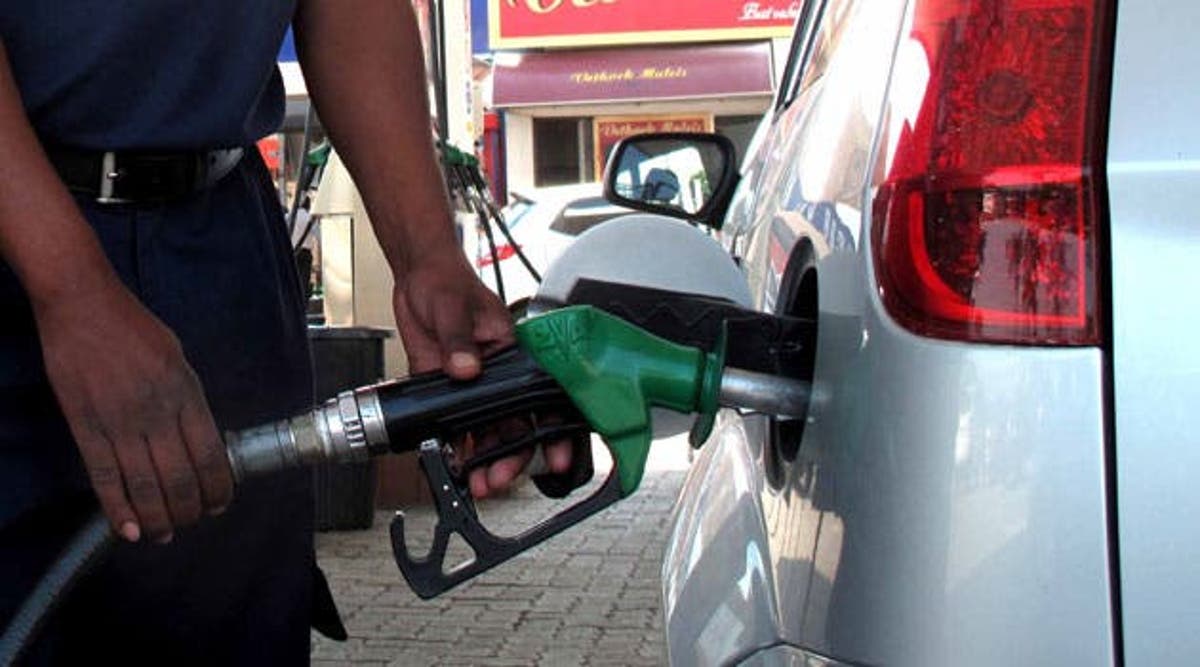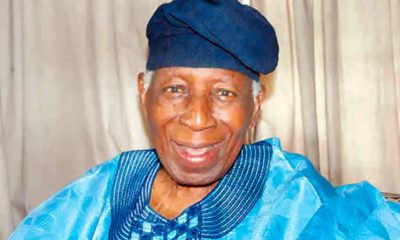Business
Forex: BDC operators speak on why naira has failed to recover

Forex: BDC operators speak on why naira has failed to recover
Bureau De Change (BDC) operators in Nigeria have raised concerns over the Central Bank of Nigeria’s (CBN) inconsistent dollar allocations, which they believe are impeding the recovery of the naira. The operators pointed out that the lack of regular and predictable dollar supply from the CBN is causing a loss of confidence in the foreign exchange (forex) market, leading to increased pressure on the parallel market.
To alleviate the forex scarcity, the CBN had approved the sale of $20,000 to BDC operators at a rate of N1450 per dollar on July 18, 2024. This measure was intended to strengthen the naira, particularly in the retail segment of the market. However, despite this intervention, the exchange rate remains high and volatile, with the dollar trading at N1590 in the parallel market.
Aminu Gwadebe, President of the Association of Bureau De Change Operators of Nigeria (ABCON), noted that the inconsistency in the CBN’s dollar supply has contributed to ongoing volatility in the forex market. He emphasized that the lack of frequent interventions has increased demand pressure and further weakened the naira.
READ ALSO:
- FG raises 13-member committee to tackle housing data challenges
- Japa: Bury idea of relocating abroad, no place better than Nigeria, Dalung advises youths
- Presidential jet: Oby Ezekwesili blasts Tinubu, NASS for ignoring public opinion
“The problem is the streamlining, only once, is it on the 18th of July or so? Like you said, about three weeks, till now, no sales again,” Gwadebe remarked, highlighting the sporadic nature of the CBN’s interventions.
Gwadebe called for the CBN to engage in more frequent dollar sales to currency traders. He suggested that sales could occur once or twice a week to ensure a more stable and predictable flow of dollars into the market. According to him, regularity and volume, coupled with a clear cut-off time, would encourage market participants to engage more confidently, thereby improving liquidity and stabilizing the exchange rate.
“But if I know the window is open for one month for me to buy and with no cut-off time, and then I am not sure when it will come again, people will not be encouraged to come into the market,” he explained, stressing the need for consistency in the CBN’s forex interventions.
Forex: BDC operators speak on why naira has failed to recover
Business
How to use $23bn forex reserves to stablise exchange rate, by Uwaleke

How to use $23bn forex reserves to stablise exchange rate, by Uwaleke
A financial expert, Prof. Uche Uwaleke has said the accretion of Foreign Exchange Reserves (NRER) at 23.11 billion dollars to Nigeria’s external reserves puts the Central Bank of Nigeria (CBN) in a stronger position to defend the value of the naira.
“The CBN can leverage rising external reserves to intervene in the forex market whenever it becomes necessary to stabilise the exchange rate,” Uwaleke said while arguing that the current size of the NER will positively impact on the value of the Naira.
Uwaleke, a Professor of Capital Market at the Nasarawa State University, Keffi, is also the President of the Capital Market Academics of Nigeria, however, raised concerns that the increase in the nation’s foreign reserves had been largely on account of temporary FX inflows such as Foreign Portfolio Investments (FPIs) and foreign loans.
He said that they represented unsustainable sources of growing external reserves.
“Impatient capital such as FPIs carry a lot of risks and have the potential of destabilising the economy whenever they leave the country.
“Against this backdrop, the government should pay more attention to diversifying the export base of the economy, especially via agriculture and solid minerals.
“The government should also create the enabling environment that attracts sustainable Foreign Direct Investments (FDIs) ,” he said.
READ ALSO:
- Heavy gunfire in FCT, police recover stolen cars, suspects arrested
- Residents of Lagos, Enugu face extreme heat, amid power issues
- 18 killed as flood wreaks havoc in parts of US
The CBN recently revealed that the NFER stood at 23.11 billion dollars at the end of 2024, their highest level in three years.
The apex bank said that the development signalled a major improvement in the country’s external financial position.
It said that the NFER, which adjusts gross reserves to account for near-term liabilities such as currency swaps and forward contracts, stood at 3.99 billion dollars at the end of 2023.
According to the CBN Governor, Yemi Cardoso, the improved position was due to substantial reduction in short-term foreign exchange liabilities, notably swaps and forward obligations.
Cardoso cited measures aimed at boosting forex market confidence and reserves, alongside increased non-oil foreign exchange inflows.
“This improvement in our net reserves is not accidental; it is the outcome of deliberate policy choices aimed at rebuilding confidence, reducing vulnerabilities, and laying the foundation for long-term stability.
“We remain focused on sustaining this progress through transparency, discipline, and market-driven reforms,” Cardoso said.
He said that Gross external reserves also climbed to 40.19 billion dollars at the end of 2024, up from 33.22 billion dollars the previous year.
“Reserves declined in the first quarter of 2025 due to seasonal factors and foreign debt interest payments, the CBN anticipates a steady uptick in reserves throughout the second quarter,” Cardoso said.
How to use $23bn forex reserves to stablise exchange rate, by Uwaleke
(NAN)
Business
Fuel prices to fall as global cost of crude drops

Fuel prices to fall as global cost of crude drops
Nigerians are expected to pay less for Premium Motor Spirit, also known as petrol, as the price of Brent dropped to $65 per barrel from $69.90 per barrel in the global market.
The price of Brent is used globally to benchmark the prices of other crudes. major feedstocks – and by extension petroleum products prices.
The development was partly fueled by the US President Donald Trump’s announcement of sweeping new tariffs.
This was reportedly fueled by the decision of the Organisation of Oil Producing Countries and its allies to increase oil output by 410,000 barrels per day starting May 2025 far above the 135,000 barrels originally planned.
A report by Vanguard stated that the depot prices of Mainland, A.Y.M and Ever have dropped to N918 per litre from N920 and N919 from N920 per litre, respectively.
Also, the depot prices of Prudent, Eterna and Soroman have dropped to N912 from N913 per litre, N897 from N900 per litre and N915 from N916 per litre, respectively.
READ ALSO:
- CBN injects $197.71m to boost FX as Trump trade tariff spreads
- Thousands protest in Spain over nationwide housing crisis
- Breaking: Former Oyo governor Olunloyo dies at 89
According to petroleumprice.ng, oil marketers would likely adjust their pump prices downwards as they get new supplies this week, if the current market condition persists.
The Vanguard report quoted the President of Petroleum Products Retail Outlets Owners Association of Nigeria, PETROAN, Billy Gillis-Harry, expressed optimism that the development would culminate in low costs of fares, goods and services if the fundamentals persist in the market.
Business
CBN injects $197.71m to boost FX as Trump trade tariff spreads

CBN injects $197.71m to boost FX as Trump trade tariff spreads
The Central Bank of Nigeria (CBN) has supplied $197.71 million to the foreign exchange market through sales to authorised dealers.
The apex bank’s director of financial markets department, Omolara Duke, disclosed this in a statement on Saturday in Abuja.
She noted that the intervention aligned with the apex bank’s ongoing commitment to ensuring adequate liquidity and supporting orderly market functioning.
According to Ms Duke, the move reflects the CBN’s broader objective of fostering a stable, transparent, and efficient foreign exchange market.
She said the decision was largely influenced by recent movements in the FX market, driven by the announcement of new U.S. tariffs and declining crude oil prices.
“The CBN has observed recent fluctuations in the foreign exchange market between April 3 and April 4.
READ ALSO:
- Thousands protest in Spain over nationwide housing crisis
- Breaking: Former Oyo governor Olunloyo dies at 89
- Anti-Trump protesters gather in cities across the US
“These are reflective of broader global macroeconomic shifts currently impacting several emerging markets and developing economies.
“These developments stem from the recent announcement by the United States government of new import tariffs on goods from several economies, triggering a period of adjustment across global markets,” she said.
Ms Duke said crude oil prices had dropped by over 12 per cent, falling to approximately $$65.50 per barrel, introducing new challenges for oil-exporting nations like Nigeria.
She said the CBN would continue monitoring global and domestic market conditions.
Ms Duke expressed confidence in the resilience of Nigeria’s foreign exchange framework, which is designed to adjust in line with evolving economic fundamentals.
“All authorised dealers are reminded to strictly adhere to the principles outlined in the Nigerian FX Market Code and uphold the highest standards in their dealings with clients and market counterparties,” she said.
CBN injects $197.71m to boost FX as Trump trade tariff spreads
(NAN)
-

 Education1 day ago
Education1 day agoErudite mass comm lecturer Oscar Odiboh becomes full professor at Delta State University
-

 metro2 days ago
metro2 days agoAutopsy reveals cause of Nigerian boxer death during fight in Ghana
-

 Entertainment2 days ago
Entertainment2 days agoA colleague raped me, Actress Lolo 1 alleges
-

 metro2 days ago
metro2 days agoScavenger killed, many injured as military grenade explodes in Lagos
-

 Sports2 days ago
Sports2 days agoWife of Manchester United goalkeeper, Onana, robbed of £62,000 handbag, Rolex
-

 metro1 day ago
metro1 day agoNurse leaves US, seeks new life in Nigeria, says everything not money
-

 metro1 day ago
metro1 day agoBreaking: Former Oyo governor Olunloyo dies at 89
-

 International2 days ago
International2 days agoTrump: VOA goes off air in Nigeria, Ghana, others









